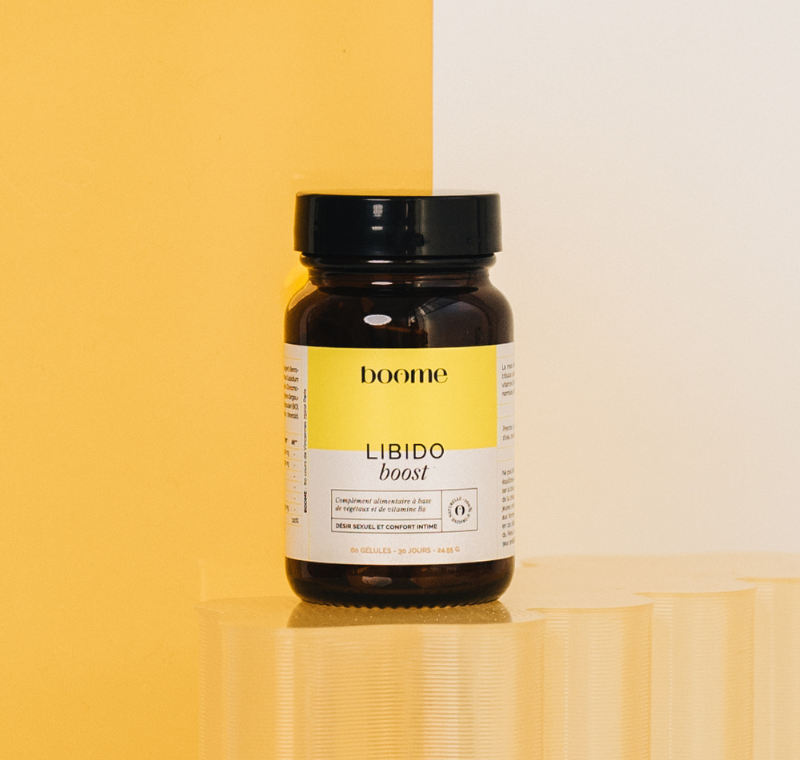
Menstrual cycles in premenopause are a real headache! Irregular periods, heavier or less frequent bleeding, and sometimes even PMS that resurfaces. If you're starting to lose your bearings with these changes, rest assured, you're not alone. This natural phase of the body marks an important transition in women's lives before menopause. In this article, discover how to better understand these fluctuations... And learn to anticipate the next steps to experience this period more serenely!
What is premenopause?
Perimenopause is the transitional period before menopause, and the cessation of menstruation. A natural stage in a woman's life, it generally begins around the age of forty. However, this can vary from person to person, as some women enter this transitional period much earlier than average: this is called early menopause.
During this phase, menstrual cycles begin to become disrupted. This is a sign that your sex hormone levels (particularly estrogen and progesterone) are experiencing another upheaval. Depending on the woman, these hormonal changes can cause a number of side effects, such as:
- hot flashes (or feeling hot);
- night sweats;
- long or short periods;
- heavy periods;
- joint pain.
The menopausal transition is no walk in the park! And to top it all off, it can last for several consecutive months. Or even... a few years!
What are periods like during perimenopause?
During these perimenopausal years, your periods undergo notable changes in duration, form, and frequency.
Fluctuating duration of periods in premenopause
This transition period can bring its share of disappointments. Among other things, the length of menstrual cycles changes. Yes, irregular periods are the quintessential symptom of premenopause! Your hormone levels fluctuate and gradually drop:
- the production of estrogen;
- the production of progesterone.
This phenomenon disrupts your menstrual cycle and makes the frequency of periods unpredictable.
Some postmenopausal women have reported that their periods have become shorter. Others, on the contrary, have noticed longer periods. Sometimes, from one menstrual cycle to the next, these irregularities fluctuate. The last period lasted 28 days... The next period is much shorter. In short, it can quickly become a mess, so hang in there!
And remember, even though this irregularity in menstruation is one of the unpleasant symptoms for many women in transition... It's still natural and healthy. Your body is moving toward the permanent cessation of menstrual cycles, and that's a good sign!
The special form of menstruation during perimenopause
The thing is, it's not just the length of your period that changes. Otherwise, it wouldn't be fun! Yes, during premenopause, your menstrual flow also does what it wants. Many postmenopausal women have experienced heavy bleeding, sometimes accompanied by blood clots. This is again explained by the hormonal upheaval the body undergoes: this disrupts the regulation of the endometrium (the uterine lining). It then thickens, and with it, a certain abundance of blood flow.
Other women in transition are also noticing the return of PMS (or at least its intensification if it hadn't disappeared). They report side effects that are no longer present:
- pelvic pain;
- sore or tender breasts;
- back pain;
- strong irritability.
We know: the return of the hormonal roller coaster can be quite strange. Especially when these physical and psychological symptoms have diminished over the years!
Guess who's behind all this? Hormones, of course! Disrupted hormonal balance exacerbates these symptoms, especially when levels of key female hormones drop so sharply, as is the case during perimenopause.
Again, rest assured: while these changes can be overwhelming, they are still normal during this transition period and are part of the natural process toward menopause.
Irregular periods
During this transition phase, you should know that the frequency of your periods also becomes irregular (we promise, after that, we'll stop with the bad news).
This means you may have one period very close to the next for a few months... Then a period of no menstrual bleeding for several weeks. Or even several months. Your ovarian function decreases, you ovulate less frequently: this leads to a longer female cycle.
The closer you get to menopause diagnosis, the longer these periods of missed periods will last. Sometimes, your last period may have been several months ago, and then it may return briefly.
This lack of control over your menstrual flow can be incredibly confusing and significantly impact your lifestyle, especially after years of typical cycles. This makes it difficult to know when menopause will truly set in and these hormonal imbalances will end.
If these symptoms become too bothersome, consult a healthcare professional, who will be able to prescribe appropriate hormone therapy and provide you with the best possible support during this difficult time.
How to manage your menstrual cycle during perimenopause?
Managing your menstrual flow during premenopause can seem complicated. But we (finally) have some good news for you: there are plenty of solutions to help you get through this period as best as possible!
Here are some avenues to explore to adopt a healthy lifestyle:
- Choose a balanced diet, rich in omega 3, calcium and vitamin D.
- Engage in regular physical activity, as it can help relieve some common symptoms related to hormonal changes.
- Remember to keep a close eye on your period flow! For example, with an app that allows you to track the onset of your period, its evolution, and better anticipate its irregularity.
- If you experience heavy periods or other bothersome symptoms (intense heat, night sweats), talk to a doctor. They can offer several treatment options, including hormone therapy or a course of dietary supplements. This can also help relieve other premenopausal discomforts, such as vaginal dryness, which can cause discomfort, itching, or painful intercourse.
All of these adjustments can go a long way toward stabilizing common perimenopause symptoms and helping you navigate this transition more peacefully!
In short, you get the idea: premenopause causes significant (and not always fun) changes in menstrual cycles. But these fluctuations are natural! By adopting healthy lifestyle habits and consulting a healthcare professional, you can better manage this transition to menopause with serenity.










